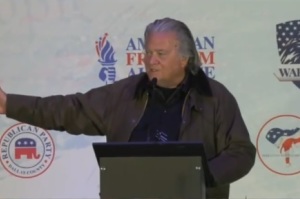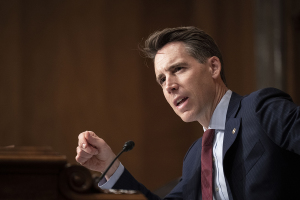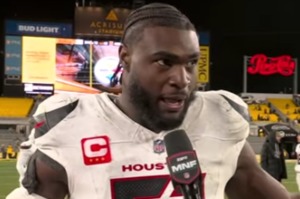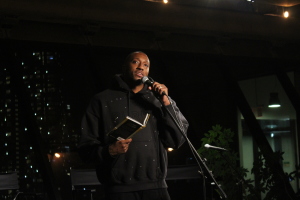FEC Gives Comedian Stephen Colbert the Go-Ahead on Super-PAC
What started as a joke became a serious issue that the Federal Election Commission had to decide on Thursday
As part of a gag on his Comedy Central show, “The Colbert Report,” Stephen Colbert started his own “Super-PAC.” The running gag is intended to poke fun at the Supreme Court's 2008 ruling in Citizens United v. FEC, which said that Congress' attempt to limit independent corporate expenditures in political campaigns was a violation of the Freedom of Speech Clause of the First Amendment.
The court's ruling means that corporations can spend unlimited amounts of money on “issue ads” in political campaigns without disclosing its donors, as long as the ads are not in coordination with a political campaign. Political groups formed to take advantage of this ruling have now been dubbed “Super-PACs.”
At issue for the Federal Election Commission was whether Viacom, Comedy Central's parent company, would be required to fulfill financial disclosure requirements with the FEC if it spent money on behalf of Colbert's Super-PAC, or whether “The Colbert Report” falls under the FEC's “press exemption.”
News organizations are exempt from the FEC's campaign finance laws. A newspaper can publish an opinion editorial, for instance, in support of a candidate, as newspapers often do, without falling under the FEC's campaign finance regulations.
The FEC ruled that Viacom does fall under its press exemption and would not be required to report what it spends in support of Colbert's Super-PAC, as long as the support is in connection with The Colbert Report. Any spending outside the show would have to be reported.
Ironically, Colbert's actions may have undermined his initial purpose by pointing to further weaknesses in campaign finance law. Colbert, who is liberal but poses as a conservative as part of his shtick, pointed the way for others who wish to spend large amounts of unregulated money in political campaigns. News organizations, now broadly defined to include Comedy Central, can try to influence an election outside of FEC financial disclosure requirements.
The FEC's ruling also lends support to those who argue that campaign finance laws are too convoluted to be applied fairly and consistently. Sean Parnell, of the Center for Competitive Politics, wrote on his blog, “While originally intended to highlight so-called ‘reformers' objections to the Citizens United decision, I think [Colbert is] actually providing his viewers with an inside look at just how convoluted, complex, and stifling our current system of campaign finance regulations are.”
Today's FEC decision would not be the first time the press exemption was highlighted as a potential loophole in campaign finance law. National Rifle Association President Wayne LaPierre had long complained that journalists could say whatever they want in an election while his organization's speech is regulated under campaign finance law. So, in 2004, the NRA bought a radio station, NRANews, which is broadcast online and on Sirius satellite radio.
Colbert did not have much to say during the hearing, relying instead on his lawyer, Trevor Potter, to do most of the talking. He did give a speech to supporters outside after the hearing, however, saying, “Sixty days ago today, on this very spot, a young man petitioned the Federal Election Commission for permission to form a super PAC to raise unlimited monies and to use them monies to determine the winners of the 2012 elections. ... Moments ago, the Federal Election Commission made its decision. I'm sorry to say ... We won!”



























